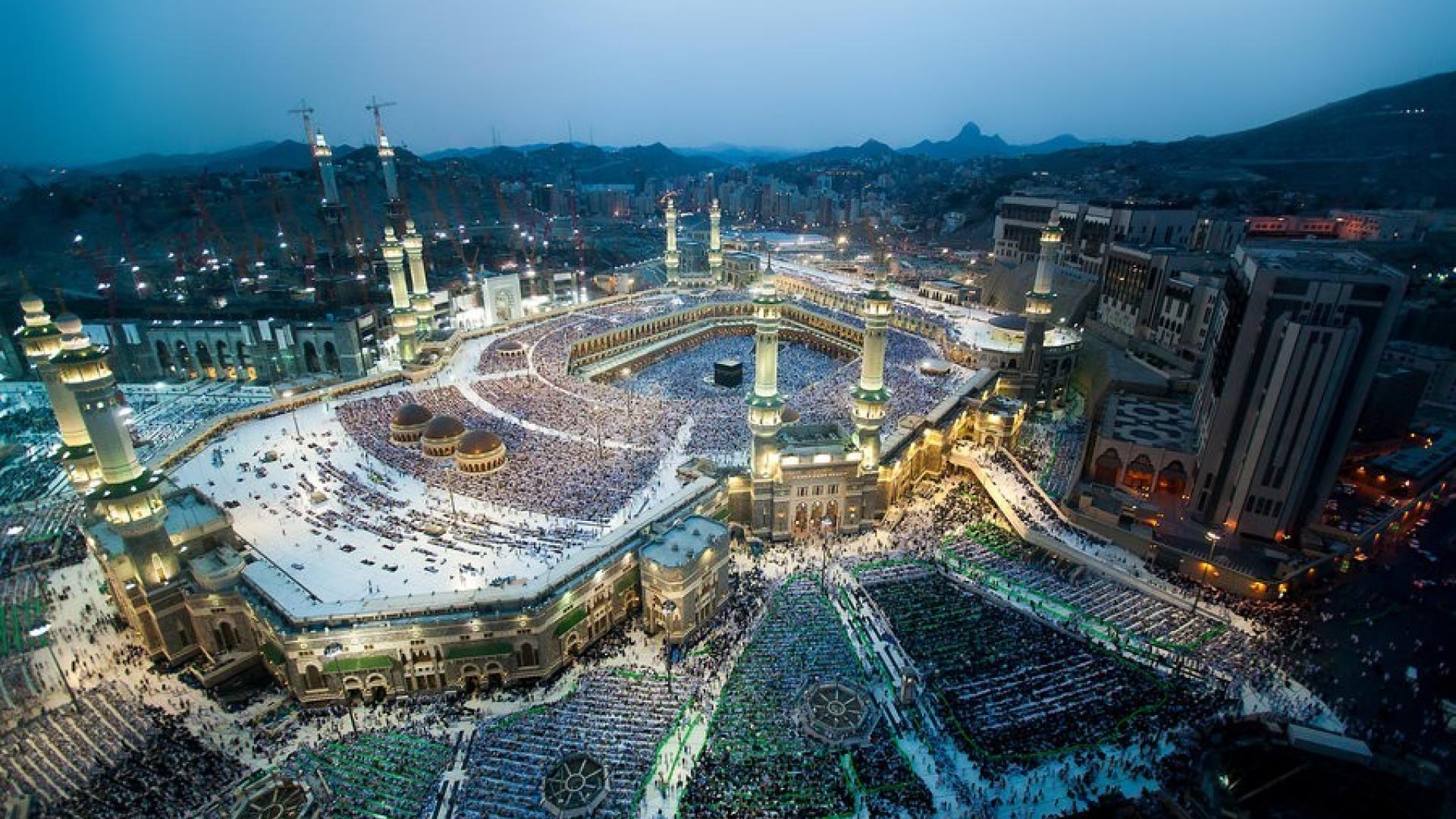 This hadith is proof that the last ten days of Ramadan have a special virtue over any other (set of days), in which one should increase in obedience and acts of worship, such as prayer, making dhikr (remembrance) and reciting the Qur’an.
This hadith is proof that the last ten days of Ramadan have a special virtue over any other (set of days), in which one should increase in obedience and acts of worship, such as prayer, making dhikr (remembrance) and reciting the Qur’an.
Aishah (radyAllahau ‘anha) has described our Prophet and role model, Muhammad (sallAllahu alayhi wa sallam), with four attributes:
1. He (sallAllahu alayhi wa sallam) would ” spend his night in worship “, meaning he would not sleep during it. Thus, he (sallAllahu alayhi wa sallam) would remain awake throughout it in worship and he would liven his soul by spending the night in sleeplessness. This is since sleep is the brother of death. The meaning of “spend his night” is that he (sallAllahu alayhi wa sallam) would spend all of it in the state of qiyam (night prayer) and performing acts of worship that are done for the sake of Allah, Lord of the worlds. We must remember that the last ten days of Ramadan are fixed and numbered. As for what has been reported concerning the forbiddance of spending the entire night in prayer, which has been mentioned in the hadith of ‘Abdullah Ibn ‘Amr (radyAllahau anhu) , then it is in regards to someone who does that consistently throughout every night of the year.
2. He (sallAllahu alayhi wa sallam) would ” wake up his family ” meaning his (sallAllahu alayhi wa sallam) pure wives, the Mothers of the Believers, so that they may take part in the profiting of good, the dhikr (remembrance) and the acts of worship during these blessed times.
3. He (sallAllahu alayhi wa sallam) would ” exert himself “, meaning he (sallAllahu alayhi wa sallam) would persevere and struggle in worship, adding more to his deeds than what he had done in the first twenty days (of Ramadan). He only did this because the night of Al-Qadr occurs during one of these (last ten) days.
4. He (sallAllahu alayhi wa sallam) would ” tighten his Izaar (waistcloth) ” meaning he would exert himself and struggle intensely in worship. It is also said that it means he (sallAllahu alayhi wa sallam) would withdraw from women. This seems to be more correct since it inclines with what was mentioned previously and with the hadith of Anas (radyAllahau ‘anhu) : “He (sallAllahu alayhi wa sallam) would rollup his bed and withdraw from women (i.e. his wives).” [Lata’if ul Ma’arif]
Also, he (sallAllahu alayhi wa sallam) would observe ‘Itikaf in the last ten days of Ramadan and the person who is in the state of ‘Itikaf is restricted from interacting (sexually) with women. So, O Muslims, strive to characterise yourself with these attributes. And guard the prayer you make in the depths of the night (tahajjud) with the Imam in addition to the Taraweeh prayer (which is prayed in the early parts of the night), so that your exertion in these last ten days may go beyond that of the first twenty. And so that you may achieve the attribute of ” spending the night in worship ” by praying. And you must be patient in your obedience to Allah, for indeed, the tahajjud (night) prayer is difficult, but its reward is great. By Allah, it is a great opportunity in ones life and a profitable thing to take advantage of, for the one whom Allah grants it to. And a person does not know if perhaps he will encounter one of Allah’s many rewards during the night prayer, thus serving as assistance for him in this world and in the Hereafter.
The righteous predecessors of this ummah would lengthen the prayer at night, exerting themselves. As Sa’ib Ibn Yazid said: “‘Umar Ibn Al Khattab ordered Ubay Bin Ka’ab and Tamim Ad-Dar to lead the people in prayer with eleven raka’at. The reciter would recite one hundred verses, to the point that we had to lean upon wooden staffs due to the long standing. And we would not stop until the early parts of Fajr.” [Al-Muwatta]
Abdullah Ibn Abu Bakr reported: “I heard my father (i.e. Abu Bakr) say: ‘During Ramadan, we would finish (the night prayer) late and we would hurry the servants to present the food (of suhoor) for fear that Fajr (morning) would come upon us.” [Muwatta of Imam Malik] There are two struggles of the soul that the believer faces during Ramadan: the struggle by day with fasting and the struggle by night with qiyam (night prayer). So whosoever combines these two and fulfills their rights, then he is amongst the patient — those who will “be given their reward in full without any reckoning.” [Surah Az-Zumar]
These ten days are the last part of the month and a person’s actions are based on his last ones. So perhaps, he will encounter the night of Al-Qadr, while standing in prayer for Allah and thus have all his past sins forgiven. And one must incite, animate and persuade his family to perform acts of worship, especially in these great times in which no one neglects it except that he has been deprived.
What is more incredible than this is that while the people are performing prayer and making tahajjud, some individuals spend their time in forbidden gatherings and sinful events. This is indeed the greatest loss. We ask Allah for his protection. Therefore, embarking on these last days means entering into the profiting from righteous deeds in what remains of the month. From the unfortunate matters is to see that some people excel in righteous actions, such as prayer and recitation of the Qur’an, in the first part of the month, but then signs of fatigue and weariness begin to show on them afterwards, especially when the last ten days of Ramadan come in. And this is in spite of these last ten days possessing a greater standing than the first ones. Thus, one must persevere in striving and struggling and increase his worship when the end of the month draws near. And we must keep in mind that a person’s actions are based on his last ones.Islambradford.com

